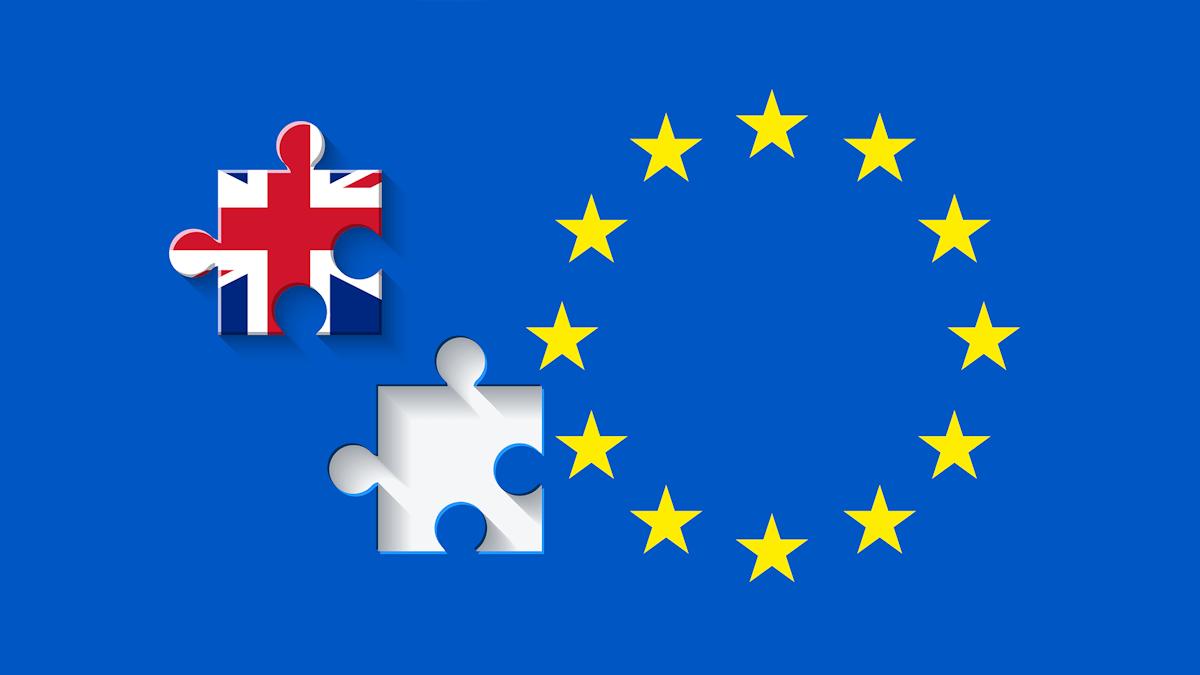Brexit would be a blow for UK life sciences – regulators and pharma alike

The British public is still split over Brexit – but pharma is warning of potentially serious consequences if the country votes 'Leave' on 23 June. Andrew McConaghie reports.
There are just six weeks to go before the British public goes to the polls to decide whether the country should stay in the European Union (EU) or leave.
Many Brits are naturally distrustful of the EU and all its institutions, partly because by the time it joined the then European Economic Community (EEC), Germany and France already dominated its agenda, and continue to do so today.
However many people in the country have come to see themselves as European as well as British, and can't envisage a UK turning its back on Europe and returning to a not-so-splendid isolation.
This division is made plain in current opinion polls, which show the country split down the middle: The latest ICM poll puts 'Leave' at 46% and 'Remain' at 44%, while YouGov finds Remain at 42% and Leave at 40%.
The very real possibility of an exit from the EU is causing consternation and worry in the UK pharmaceutical industry, which is virtually unanimous in its desire to stay in.
On Monday, the UK pharma industry association the ABPI decided to explicitly back the Remain campaign, having previously left it to individual companies to express their position.
Mike Thompson, chief executive at the ABPI, said its members were "overwhelmingly supportive" of remaining in the EU.
The same message is also being loudly proclaimed by the UK biotech sector's BIA, while GlaxoSmithKline's Sir Andrew Witty and AstraZeneca's Pascal Soriot spoke out in favour of continued EU membership weeks ago.
In the wider debate, neither side has been able to provide a 'killer blow' argument to prove that either staying in or out will be best; no country of the UK's size or stature has ever left the EU, so the long-term ramifications are impossible to predict.
But for pharma and the wider life sciences field – including the UK drug regulator the MHRA and the London-based European Medicines Agency (EMA) – and perhaps ultimately patients – there are compelling arguments that Brexit could cause real damage.
If the UK were to leave, it seems almost certain that the EMA would have to re-locate elsewhere within the EU. This would be a major blow and, in addition, the UK would have to renegotiate its membership of the EMA system, which gives a single European approval for all new drugs.
While it is eminently possible for the UK to remain in this club – it currently includes the 28 EU member states plus non-EU countries Norway, Iceland and Liechtenstein – UK pharma still fears this scenario.
"We believe that staying in the EU will mean that patients in the UK will be more likely to get faster access to new medicines than if we left," said the ABPI's chief executive Mike Thompson on Monday.
"With the European Medicines Agency, pharmaceutical companies have a one-stop shop for centralised licensing of new medicines and treatments across Europe. If we left the EU this would mean that the licensing of new medicines would have to be handled by a UK agency as well as a European agency. Our members have confirmed that the applications for a UK licence would come after the European licence due to the smaller patient population in the UK."
This pro-European sentiment was echoed at a meeting in central London on the same day, co-hosted by the Pharmaceutical Directors' Club (PDC) and Ethical Medicines Industry Group (EMIG), which represents small-to-medium pharma companies.
A survey completed by 50 individual pharma exec members of the PDC found them overwhelmingly against Brexit, and deeply concerned about what it would mean for the sector.
The majority said there would be many negative implications, and no positive implications, with 83% believing that UK pharma's global status would suffer, with fears that the number of clinical trials conducted here would also fall, as would overall R&D investment.
Sarah Rickwood, head of thought leadership, IMS Health was one of the speakers at the PDC/EMIG event, and tried to weigh up all the possible pros and cons of Brexit.
Remaining objective, Rickwood said all the signs were that leaving the EU would have more disadvantages than advantages.
She stated that Brexit would have implications for the sector in regulatory, trade, scientific and commercial matters.
In the commercial field, she explained that it was unclear whether the UK would remain an attractive early launch country or as a corporate location, both areas where it is currently a clear leader in Europe.
Rickwood also pointed out that the EU's new Unified Patent Court (UPC), currently planned to be sited in London from 2017, would, like the EMA, have to relocate.
Professor Vincent Lawton, chairman of Addex Therapeutics and a former ABPI President and MHRA board member, also warned that Brexit would mean that the country lost out. He said Switzerland's step to restrict the free movement of people between it and the EU saw it punished by Brussels, which withdrew Horizon 2020 funding for research, which, he stated, had cost the country £200 million so far.
Lawton also warned that the MHRA, now frequently a lead rapporteur for EMA regulatory work, would see its current £12-15 million funding from Europe evaporate.
Summing up her findings, Rickwood concluded: "Post-Brexit, the best-case scenario would mirror the status quo," she said. "It might benefit other parts of the economy, but I don't believe that it benefits pharma."
Some commentators have suggested that the wider UK economy might benefit from the devaluation of the pound which is likely to result from Brexit, making its exports more attractive. But Allie Renison, head of Europe and Trade Policy at the Institute of Directors told the meeting that previous Sterling devaluations had shown that such benefits had not materialised.
The debate left many pharma industry people in the room concerned, but still bemused as to what the Leave campaign really believed the advantages would be.
While it has a handful of high-profile champions – most notably the enduringly popular Boris Johnson – there are very few high-profile business leaders who are 'Leavers'.
The PDC/EMIG meeting did hear from one persuasive pro-Brexit voice, Lord Digby Jones, a businessman, former director general of the CBI and ex-minister for trade and investment.
He said he wasn't part of the 'swivel-eyed' Brexiteers who hated Europe, but said he backed the move because he believed the EU had lost its way as an engine of economic growth.
Pointing out that 75% of the EU budget went towards subsidising agriculture, Jones said: "the business model is bust," adding that many member states were focused on protecting old industries at the expense of new skills and technology.
He warned that this was 'Asia's century' and that Europe was completely unable to compete or to reform itself in its current form.
Jones agreed that an exit would not be easy for the UK, but felt that a few years of difficulty would be worth it in the long term.
"I am thinking of the global competitiveness of my country 50 years from now," he said.
Despite the eloquence of Jones' argument, he failed to sway his pharma industry audience, which reflected the instinctive nervousness about uncertainty in the whole UK pharma sector. Many in the industry argue that pharma looks to the longer-term as well – as it must plan ahead 10 years when investing in research and development.
UK pharma will throw its weight strongly behind the Remain campaign in the remaining weeks, and can only hope that the majority of British voters arrive at the same conclusion on 23 June.
About the author:
Andrew McConaghie is pharmaphorum's managing editor.
Contact him at andrew@pharmaphorum.com and follow him on Twitter.
Read more from Andrew McConaghie:












